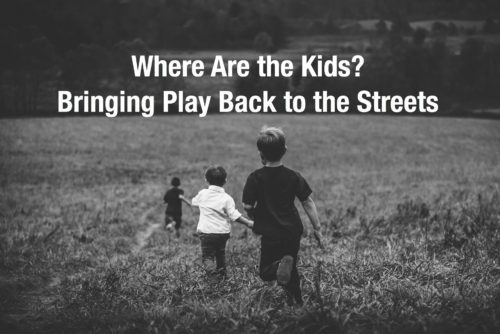This article was originally titled, “Why Penis and Vulva Aren’t Dirty Words.” I changed it because even though “vulva” is correct terminology, we are much more accustomed to hearing “vagina.” The vagina is actually the canal that connects the uterus to the outside world. The cervix protrudes into the vagina. The vulva is the entire female external genital “package” containing the labia, clitoris, and opening to the urethra and vagina. Are you cringing yet? You shouldn’t be. This is just basic anatomy of a female and it shouldn’t be any more awkward than talking about elbows or arms. They are just parts. A brain. An eyeball. A penis. A vulva. All part of the human body. All have their own functions. All are natural.
Talking about ‘private parts‘ usually begins in whispers and ends in giggles. Genitals are referred to as “down there” and other vague terms. Children have been pulled out of school for learning the word ‘penis.’ Innocence lost. This is a problem. Innocence lost from learning the anatomically correct name of a body part. How on earth are we going to tell our doctors if something is wrong “down there” if we can’t speak openly about our own body parts? How do we communicate important medical information if we have to whisper the words as the blood rushes to our cheeks.
I know for certain that I don’t want my daughter to feel ashamed of her body or its functions. I don’t want her to feel embarrassed that she has a menstrual cycle; that she bleeds once a month. Without menstruation, without reproductive organs, the human race would cease to exist.
We should have an open, matter-of-fact dialogue with our children about their bodies, from toddlerhood when they are first discovering they have genitals, through high school, when they need guidance and a powerful compass. Conversations about our reproductive organs shouldn’t be shared in whispers, in awkwardness, or in a single Awkward Event known as “the talk.” We need to lift the shroud of secrecy that surrounds these conversations if we want our children to learn OUR values about sex and sexuality, rather than absorbing values from potentially ill-informed friends or media sources.
It is also important that we teach anatomically correct body parts to our toddlers, preschoolers, and young children in order to empower them against sexual predators. If a predator hears a child referring to his penis as a penis, the predator will realize this child is educated and aware of his body. This child knows exactly what to call each body part and will be able to disseminate information about it to an adult. It obviously isn’t a guarantee of safety, but why not give our children as many tools as possible to keep them safe? We want our children to take ownership of their bodies and not be afraid to say “no, this is my body.” Being able to talk about their body is an important first step.
Consider a child who has leaned to refer to her vulva as her “cupcake.” An adult might just nod with an “uh huh” and shrug it off if she built up the courage to say that somebody touched her cupcake. And that offense could slip under the radar. Also, if our children only know their body parts by their correct names, we will see the waving red flag if they suddenly refer to a body part by a nickname.
Consent, body rights, empathy and privacy are important things to keep in that open dialogue. There are many books out there for everyone, preschoolers to adults, to help guide us in these conversations. I know that I have to fight with myself to let go of that self-consciousness when discussing genitalia with my children because I want them to always feel like it is safe to talk about any part of their body. Their bodies are healthy and no part is off-limits for a discussion.
5 tips for keeping an open, matter-of-fact dialogue with our kids about their bodies.
1. Always answer a toddler or preschoolers questions about their body. No giggling or silliness. No “go ask your dad.” And the same goes for our pre-teens and teens!
2. Embrace the opportunity to answer questions in public. Your child will know they can talk to you anytime, and you will be doing your part to normalize these conversations for anyone who happens to be within earshot.
3. Use the correct words. If your toddler learned the word elbow and said, “is that your elbow?,” what would you say? Chances are, you would say, “that’s right! It’s my elbow!” instead of a vague acknowledgement followed by a change of subject. Use the same confident tone with all body parts, whether it’s an elbow, knee, penis, or vulva.
4. Teach your child that their body is theirs and no one has the right to ‘hurt’ their bodies even when a grown up is doing it. For children, it’s very empowering to have permission to say “no” to an adult or walk away from them, if they’re uncomfortable with a request. (It’s also important to note that, often, sexual abuse doesn’t hurt. The predator will be sure not to harm the child, to make sure it feels good, to help ensure that the child doesn’t tell, and so they can continue. Teaching body rights (that no one should to
5. Children are guaranteed to explore their bodies. It’s natural. Resist the urge to make a scene about it. Keeping our voices calm and positive. A gentle reminder of doing it in a private place is ok if they are old enough to understand.
We want our children to feel completely familiar and confident with their bodies. No shame, no confusion, no embarrassment. A child or teen who has knowledge and information is empowered. They are at far lower risk for abuse. They are more likely be adults who enjoy a healthy and beautiful sexual relationship and understand their own sexuality.
For some excellent resources on the prevention of sexual abuse, check out the Mama Bear Effect.
For an awesome children’s book about our bodies and how babies are made, we recommend It’s Not The Stork!.
Let’s start a conversation. What are your suggestions or struggles when it comes to raising body confident kids?




2 Comments
[…] them about their bodies. Label body parts correctly. Talk about following hunger cues. Talk about how no one has a right to touch their body if they […]
Small compared to the catastrophes listed underneath DPR, however definitely sufficient
to severely affect what youu are promoting operations.